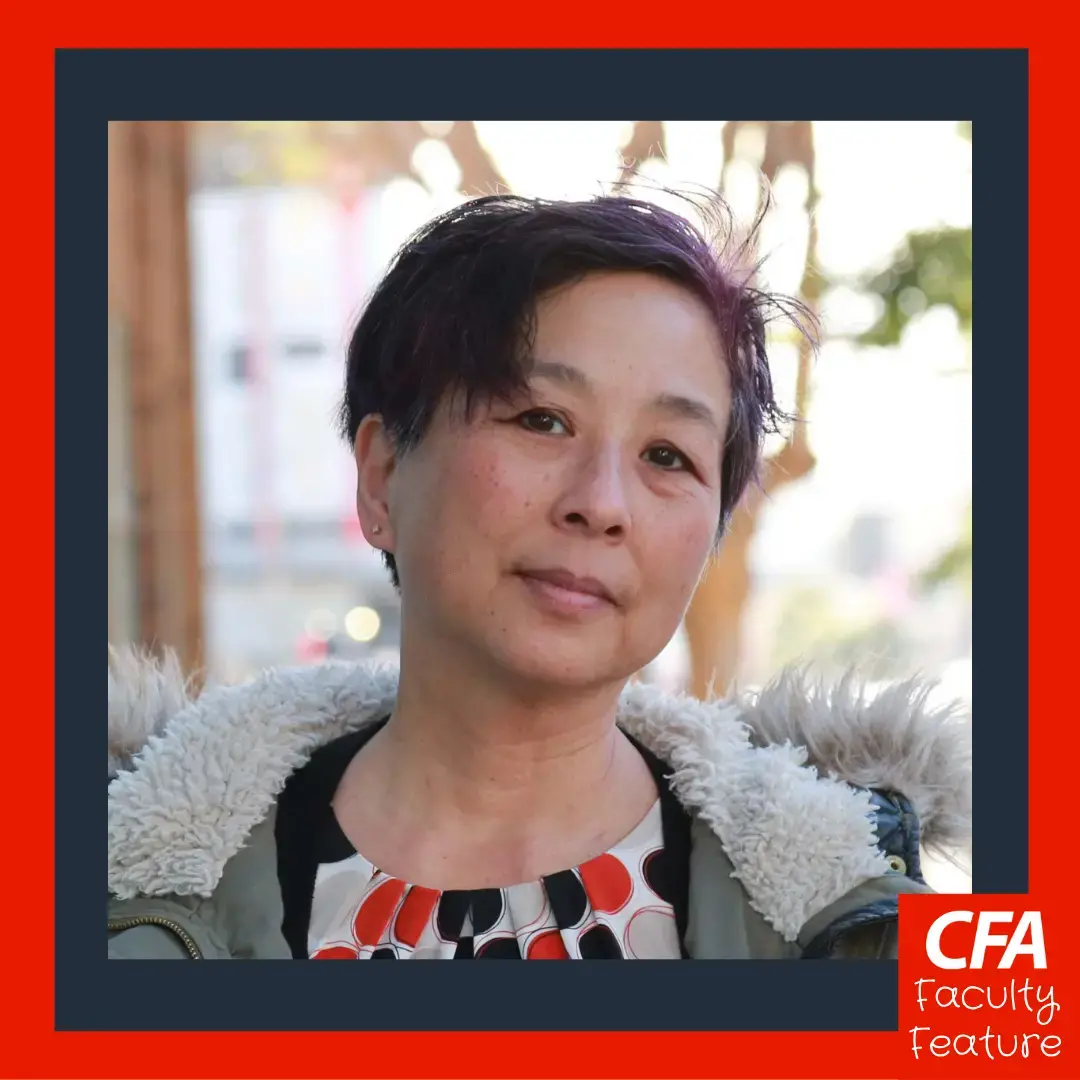Faculty Feature: CFA San Francisco Member Studies Collective Action Among Workers
“Sometimes when we’re in the trenches, it seems sort of bleak everywhere, but when you back up a little bit, you realize that maybe things are better than we think.”
Valerie Soe is a professor of Asian American studies at San Francisco State University. She is currently in Taiwan working on a documentary that draws connections between grassroots organizing, Taiwanese community organizing, and finding reasons to be optimistic.
In the United States, Soe had been a member of the “Auntie Sewing Squad.” It was made up of “volunteer sewers who came together to make masks for unhoused communities last year.” It was a grassroots organization without much hierarchy or structure, a community of primarily Black, Indigenous, and People of Color women committed to their work.

“I wanted to come to Taiwan and see if I could find other women workers who had done stuff like the Auntie Sewing Squad. Specifically, I was looking for people who worked in garment and manufacturing industries,” Soe explained.
While exploring grassroots organizing, not surprisingly, she found labor organizers. Through them, she is learning about Taiwanese worker movements. Soe has noticed that Taiwanese worker advocacy parallels emerging with her work in the U.S. In the past, Soe has served as an officer of and continues to be active with CFA.
Conversations on migrant work piqued her interest. What she found thus far is a parallel dynamic with migrant workers within the U.S. and Taiwan. The overall share of migrant workers in Taiwan is not as large as the United States; it is a critical mass of about 680,517 in a country of 23.5 million. Migrants tend to come from Vietnam, Thailand, Indonesia, and the Philippines. Many migrants work as caregivers, equivalent to a home health aide in the U.S. Others work in factories, and a select few become “marriage migrants,” marrying Taiwanese men for legal status.
“Looking at community organizers and how they’ve been able to change things by having mass movements. So to me, it all makes sense to be in a union,”
– Valerie Soe, professor of Asian American studies at San Francisco State University.
Soe las learned that migrants join together through non-governmental organizations (NGOs) advocating for greater access to residency and citizenship so they can participate in civil society. These NGOs also advocate for improved working conditions. Similar to the H1 Visa program in the United States, migrant workers can’t change employers.
She kept hearing from her new colleagues and friends that it is a great moment in U.S. labor organizing.
“Folks worldwide are seeing big, giant corporations like Amazon and Starbucks getting unionized. So that’s amazing for them,” Soe mused. “Overseas people perceive those movements as more significant than what we may realize in the U.S.”
Like many around the world, the labor movement in Taiwan was gearing up for May 1, International Workers Day. Railway workers have been preparing for a May Day weekend strike.
Noticing the way folks are organizing in Taiwan also helps Soe appreciate the collective work of CFA leaders and activists.
While Soe understood the power of community organizing, it was different when she was in leadership. It confirmed what she knew about the strength of collective power.
“Looking at community organizers and how they’ve been able to change things by having mass movements. So to me, it all makes sense to be in a union,” she said.
Wielding collective power for the common good aligns with the traditions Soe identifies with the most in Ethnic Studies.
“That all appeals to me as far as being an Ethnic Studies professor. The idea of working collectively is an ethos of Ethnic Studies,” she said.
For Soe, building power means building community and vice versa no matter in California or Taiwan.
Join California Faculty Association
Join thousands of instructional faculty, librarians, counselors, and coaches to protect academic freedom, faculty rights, safe workplaces, higher education, student learning, and fight for racial and social justice.